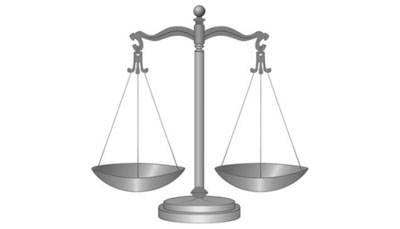When I arrived in a leadership role at Dun & Bradstreet France, my first assignment was to put together a turn-around plan. The plan included lay-offs, which meant I had to get the approval of the union. Following my first presentation, the union head approached me. He said that although my talk was one of the best he’d ever heard, in his experience with my predecessors, there was always a “but”. So why should he believe my plan was any different? Why would it work when others had failed?
It was a tough question! I could only answer it honestly, “I do not know why the previous plans did not work,” I replied, “ but let me tell you this. As a new president, my contract provides me with a new company car. But when I saw the recent losses suffered by this company, I decided that the new company car would have to wait until we were profitable again. That's who I am.”
The union head stood up, thanked me and came forward to shake my hand saying: "We have a deal... we will back you up.”
How did I win the trust of the union head that day? I won his trust because my actions demonstrated what I believed. He responded positively to my character versus my qualifications as the new leader.
Character versus talent: which one wins?
Does this mean that talent is not important in a leader? Qualifications and talent are important, but they are secondary to character. Of all the leadership traits, being trustworthy and possessing integrity always tops the list. Only then will people follow you.
Peter Druker, noted business guru, said it best. “Culture eats strategy for breakfast”. Through his vast experience in business and leadership, Druker found that regardless of its products or services, no company flourishes if its employees don’t embrace a common set of values. Those values are continually demonstrated through behaviour, from the president right down to the mail clerk. Companies like Enron may win in the short term, but eventually, lack of integrity catches up with them and the fall can be legendary!
Mark Fields believed in Peter Drucker’s quote so strongly that he had it hung in the main boardroom at Ford Motor Company. Fields was faced with an extremely challenging situation as the new president. After Alan Mulally's successful turn-around of Ford, Fields had to not only craft a winning strategy but to also build a new culture for the company based on innovation and a sense of responsibility. Under his leadership, Ford continued to set profit records in North America once again.
What is integrity?
For me, integrity is simple. It’s living your life honestly. Think of it this way. Reputation is what you do when everybody is watching, character is what you do when no one is watching... because your character sees you through.
A good leader creates an environment/culture where truth and openness is respected, encouraged, and rewarded.
- Be authentic (straightforward)
- Never punish honesty
- State you values and stay true to them (walk the talk)
Integrity is a state of mind. It does not depend on context. It does not depend on how big or small the situation. It doesn’t change even when others are treating you unfairly, or expecting more than you can possibly deliver. There should be no exceptions to honesty and integrity.
Like my experience in France with the union, integrity can’t be adjusted even when there’s a car at stake! Character always matters.
For more practical advice for entrepreneurs, general managers and CEO's on how to manage people and get above average results from average people, check my new book MAVERICK LEADERSHIP. Click here for a short video and a complimentary review of one chapter.


